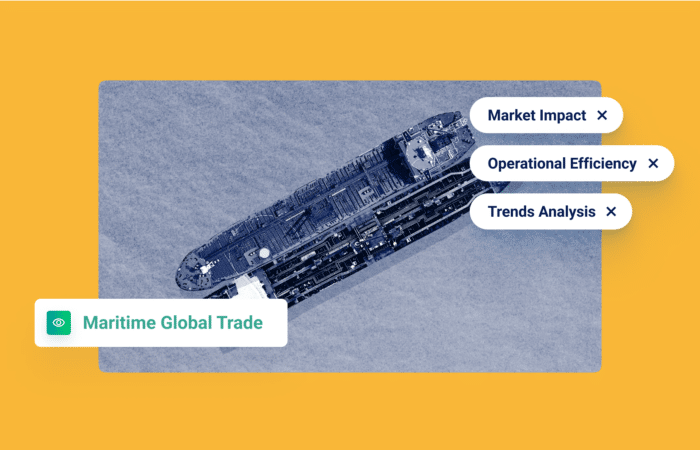What’s inside?
Sanctions have completely shifted, as described in my previous blog post in this series.
This post offers four important factors influencing the maritime sanctions balance. The goal is to effectively punish wrong-doers, continue to facilitate global trade, and make it easy for the entire maritime ecosystem to identify deceptive shipping practices (DSPs).
While proponents tout their potential to influence state behaviour and promote global security, critics highlight the inherent perils of unintended consequences and economic instability. This tension lies at the heart of the complexities associated with crafting, implementing, and enforcing sanctions – particularly within the intricate, ever-evolving landscape of maritime trade.
The current Houthi disruptions and the resulting sanctions also cause many to question the efficacy of sanctions – do they actually work against a rogue band of fundamentalist terrorists?
The ideal scenario for sanctions in general is an (possibly utopian) equilibrium where targeted pressure against nefarious actors minimises spillover effects on innocent populations, but this proves elusive in practice. Maybe the latest example of the complexities is the new UK oil price cap attestation requirements coming into force on February 19.
Broad-based sanctions, while intended to exert significant economic pressure, often inadvertently unleash a cascade of negative consequences – from job losses and price hikes, to fuel shortages and humanitarian crises. These hardships can disproportionately affect vulnerable populations within the targeted nation, breeding resentment and potentially strengthening the very regime the sanctions aim to weaken – this is definitely a Western fear regarding the Houthis.
Also, the inherent opacity of maritime supply chains and vessel ownership structures creates fertile ground for circumvention. Exploiting loopholes and engaging in illicit trade practices – through transshipments, shell companies, falsified documentation, and deceptive shipping practices – becomes an alluring option for both sanctioned entities and opportunistic profiteers. This fuels corruption, bolsters black markets, and ultimately undermines the effectiveness of sanctions.
Despite these formidable hurdles, dismissing sanctions as inherently ineffective would be an unforced effort. In specific circumstances, when meticulously crafted, rigorously enforced, and supported by a broad international coalition, targeted sanctions can demonstrably influence state behaviour.
Ultimately, the efficacy of maritime sanctions hinges on a delicate dance between achieving desired political objectives, mitigating collateral damage, and ensuring compliance. This necessitates:
Intricate Interplay Between BIS and OFAC
The intricate dance between the Bureau of Industry and Security (BIS) and the Office of Foreign Assets Control (OFAC) significantly intensifies the complexity of navigating the maritime sanctions landscape. While both agencies play crucial roles in upholding national security and foreign policy objectives, their distinct mandates create a multi-faceted regulatory environment for companies and financiers operating in the maritime sector.
Guarding the Dual-Use Threshold
BIS acts as a vigilant gatekeeper, meticulously scrutinising the export and import of sensitive “dual-use” items. These seemingly innocuous goods and technologies, ranging from advanced navigational equipment to high-performance polymers, possess civilian applications, but possess the potential for military adaptation.
BIS enacts stringent controls through Export Administration Regulations (EAR), which require licensing for transactions involving such items destined for specific countries or entities. Failure to comply with BIS regulations can result in severe financial penalties, and even criminal prosecution.
The Economic Coercion Weapon
While BIS focuses on the physical flow of goods, OFAC wields the economic hammer, implementing targeted sanctions against countries, entities, and individuals deemed threats to national security, or foreign policy objectives. These sanctions often involve restrictions on financial transactions, trade activities, and even travel with sanctioned parties.
For maritime companies and financiers, navigating OFAC’s & other regulators sanctions list and complex regulations is crucial to avoid inadvertently facilitating prohibited transactions, leading to potential reputational damage and legal repercussions.
The interplay between BIS and OFAC amplifies the complexity exponentially. Companies operating in the maritime sector must meticulously assess each transaction to ensure compliance with both sets of regulations.
This often necessitates expertise in interpreting the intricate web of BIS export restrictions and exemptions, alongside a thorough understanding of OFAC’s targeted sanctions against specific countries and entities. For instance, a company exporting navigation equipment to a sanctioned country might require a BIS license, but also face comprehensive restrictions from OFAC, necessitating extensive due diligence and close collaboration with both regulators.
The Challenge of Illicit Actors and DSPs
Illicit actors constantly adapt their tactics to evade detection. Mis-declared cargo, covert transshipments, a multitude of evasion tactics, deceptive shipping practices (DSPs), and the opaque labyrinth of shell companies are just a few weapons in their ever-evolving arsenal.
Regulatory guidance now delves deeper into these technical intricacies and advanced AI and machine learning technologies are empowering industry players to assess potential dangers and stay on the right side of regulations. Stay tuned, my next post will give you the outlook for the rest of 2024, and beyond.







